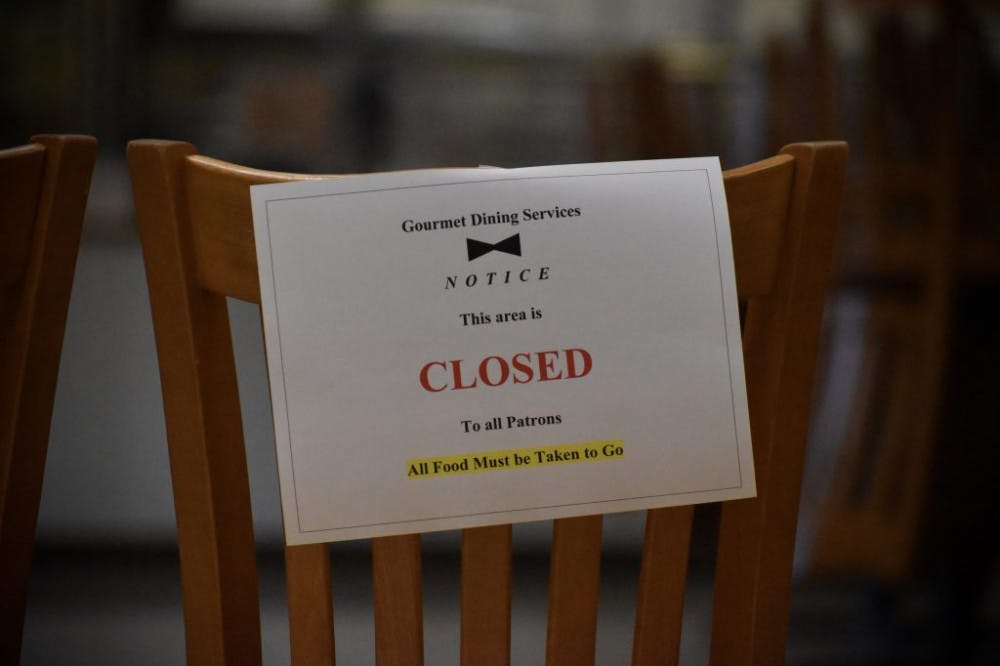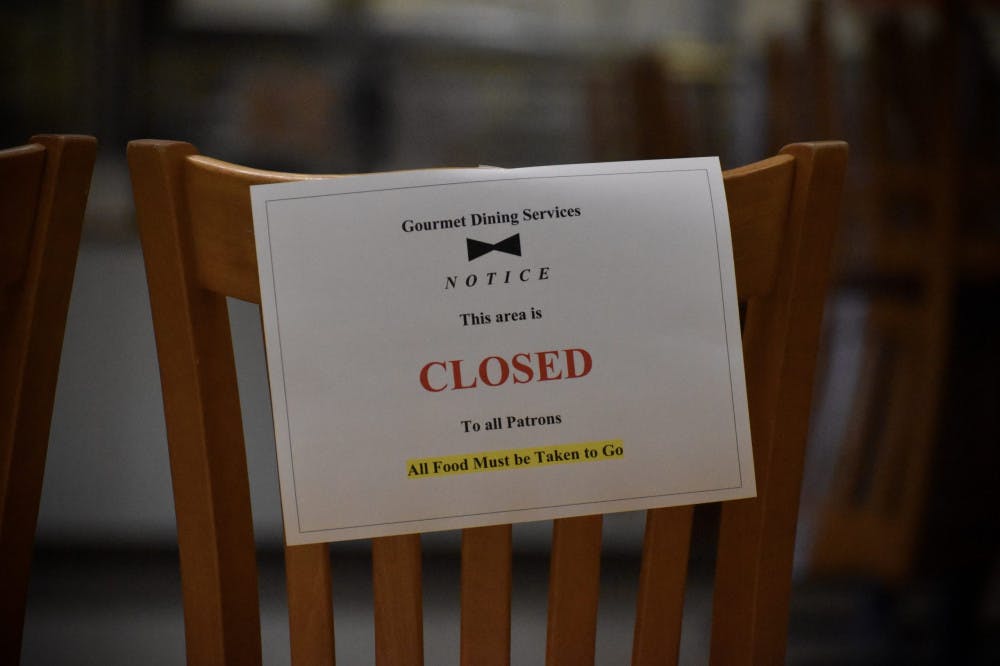The Board of Regents unanimously approved the prorated refunds for room, board and parking for the spring semester. Additionally, the University anticipates distributing the refunds sometime in April, according to University spokeswoman Laurie Pine.

Pine said the University is developing the exact details of the refunds and how they will be processed. Moreover, she noted that the University is examining the $2.2 trillion federal stimulus plan which includes provisions pertaining to “institutional and student relief.”
“We are reviewing the implications of that 880-page legislation for guidance on how to best handle refunds in order to provide the maximum assistance to our students, their families and the University,” Pine said.
While the University has approved these refunds, Student Government Association secretary Elise Kerim is advocating for a partial tuition reimbursement.
After the University suspended in-person classes for the duration of the semester, Kerim circulated a petition requesting a partial tuition refund for the spring semester. Kerim said that over 3,000 students and parents signed the petition.
Presently, Kerim said that there has not been any indication of a partial tuition reimbursement.
“I understand this situation is not anyone's fault but I’m questioning where my tuition payment is now going has not left my mind since the initial announcement of our switch to remote learning,” she said.
Kerim said that it is challenging to fight for a specific dollar amount or proportion of the tuition when the tuition breakdown is vague.
“All I'm advocating for is the prorated amount, just like what we are being given back with housing and parking,” Kerim said. “I think that is completely fair to get back what we are not now using. The University knows what this amount is. They know what to do, but they need to consider its importance and work out those financial details. I don't think it's an unreasonable request.”
According to Kerim, Vice President of Student Services Dr. Shawna Cooper-Gibson and Associate Vice President and Dean of Students Karen Van Norman have helped relay her concerns to Seton Hall Chief Financial Officer Stephan Graham. Also, Kerim said that although she is a representative in SGA, this is not an SGA initiative.
“I have been working on it with a highly ambitious group of concentrated students, none of whom are affiliated with the SGA,” Kerim said.
Ultimately, Kerim said she is aware that a petition will not result in direct action. But she remains hopeful as numerous students and parents have expressed their concern over the status of their tuition.
Seton Hall’s Health Intervention and Communication Team detailed that the University is continuing to work through state and federal financial aid/Title IV funding regulations “to ensure the refunds are processed in accordance with relevant laws and regulations.” However, no official word has been said about a potential tuition reimbursement.
Associate Professor of Higher Education Dr. Robert Kelchen said that he would be surprised if the University refunded tuition for the spring semester except under limited circumstances. He said he based his analysis on the University’s latest IRS Form 990 and noted that he has not had any internal conversations with administration regarding the issue.
“Unless a student is unable to complete a course online, they still earn credit toward their degree,” Kelchen said. “Many students and faculty may not prefer classes that are suddenly being put online, but most students are still able to make academic progress during this time.”
Moreover, he said students who cannot complete courses, like labs or internships, may be able to receive an incomplete grade and finish the course later making a refund unnecessary.
According to Kelchen, the University would “take a major financial hit” if it reimbursed a portion of tuition, which comprises about 70% of the university’s total revenue. As reported in the most recent IRS Form 990 filing, the University received $33 million in room and board revenue and charged about $325 million in tuition, before scholarships, in 2017.
He said that the partial reimbursement of room, board and parking will be a dramatic financial hit to the University. He claimed this refund may cost about $8 million. The University had a net operating margin of $22 million in 2017, which is the University’s revenue minus its expenses. Kelchen said this margin was mainly driven by investment income that will vanish in 2020.
“Refunding room, board, and parking fees is the right thing to do, but that is a painful hit to the University's budget,” Kelchen said.
Kelchen said that even if the University refunded 20% of tuition paid after scholarships for the spring semester, it could cost $10 million, which would cause a massive operating loss.
“The upcoming year or two will be financially difficult for Seton Hall and nearly every other university around the country, without offering any tuition refunds, and offering refunds would make this even worse,” Kelchen said.
Nevertheless, Kelchen said he does not think that Seton Hall’s listed tuition price for next year would be affected by tuition reimbursements.
“Universities will try to wait as long as possible before setting tuition for next year as everyone tries to figure out how long this pandemic will last,” Kelchen said.
He said he expected universities to keep tuition increases as low as possible as a recognition of students’ challenging financial circumstances. Moreover, he said universities will halt hiring and attempt to cut budgets to make this possible.
Said Kelchen, “Even if tuition does increase, universities will face pressure to increase the size of scholarships in order to recruit and retain students during this period of uncertainty.”
Thomas Schwartz can be reached at thomas.schwartz@student.shu.edu.





